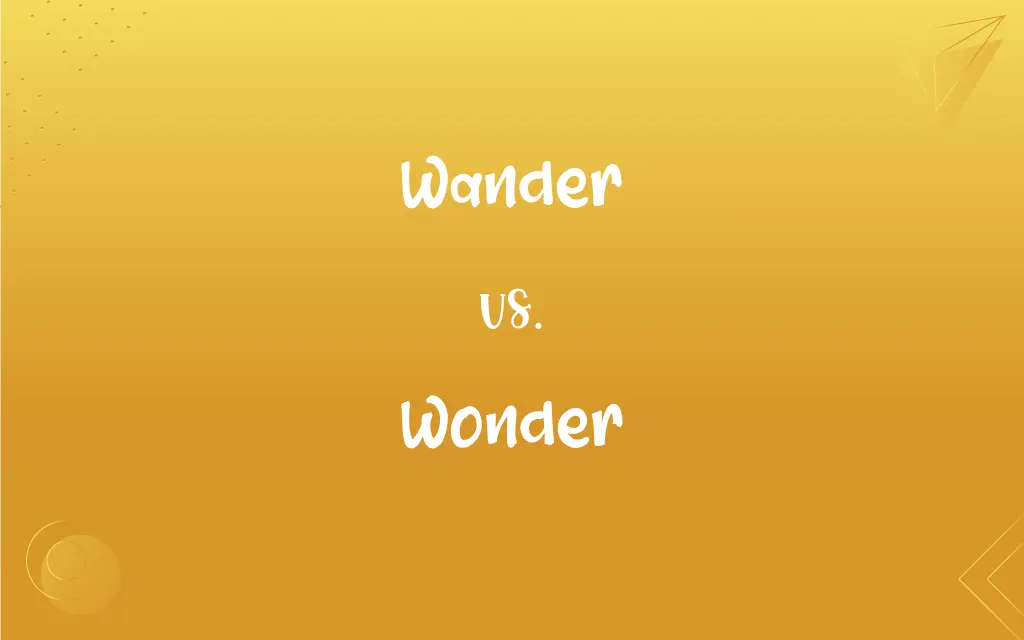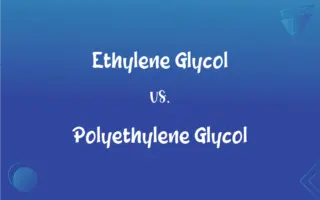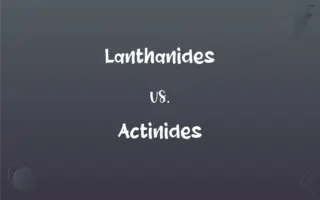Wander vs. Wonder: What's the Difference?
Edited by Janet White || By Harlon Moss || Updated on October 19, 2023
Wander means to move about aimlessly or without a specific destination; wonder refers to feeling curious or being in awe about something.

Key Differences
Wander typically refers to the act of moving about without a particular purpose or direction, often in a leisurely and unhurried manner. In contrast, wonder is a feeling of amazement or admiration, often mixed with doubt or curiosity about something.
Wander can describe physical movement, like walking or traveling without a clear destination in mind. On the other hand, wonder often deals with the realm of thoughts, where one ponders or is astonished by an idea or occurrence.
While someone may wander through a forest or a city, exploring without a clear path, that same person might wonder about the history of the place or the mysteries it holds.
Wander can also be used metaphorically to describe thoughts or discussions that meander without a clear focus. Similarly, wonder can go beyond mere curiosity and indicate a deeper, often reflective, admiration or amazement.
In essence, while wander emphasizes movement or deviation, often without purpose, wonder focuses on the feeling of curiosity, amazement, or doubt.
ADVERTISEMENT
Comparison Chart
Primary Meaning
To move about aimlessly or without direction.
To feel curiosity or amazement about something.
Part of Speech
Mainly used as a verb.
Can be used both as a verb and a noun.
Related to
Physical or metaphorical movement.
Emotion or thought.
Example Context
Travelling or walking.
Thinking or feeling admiration.
Grammatical Use
"She would often wander in the park."
"I wonder if she's coming today."
ADVERTISEMENT
Wander and Wonder Definitions
Wander
To move or travel aimlessly.
He likes to wander around the city on weekends.
Wonder
A feeling of surprise and admiration.
The Grand Canyon is truly a wonder of nature.
Wander
To stray from a path or course.
Be careful not to wander from the trail during our hike.
Wonder
To feel curiosity or doubt.
I wonder what time it is.
Wander
To move slowly away from a fixed point or place.
The sheep began to wander from the rest of the flock.
Wonder
To be filled with admiration or amazement.
He gazed in wonder at the night sky.
Wander
To explore or travel without a specific purpose.
They decided to wander the countryside for their vacation.
Wonder
Something that causes astonishment.
The ancient pyramids are wonders of engineering.
Wander
To deviate in thought or speech.
Her mind would often wander during long lectures.
Wonder
To ponder or speculate.
She would wonder about her future and what it held.
Wander
To move about without a definite destination or purpose.
Wonder
The emotion aroused by something awe-inspiring, astounding, or surprising
Gazed with wonder at the northern lights.
FAQs
Can you use wander in a metaphorical sense?
Yes, e.g., "His thoughts began to wander."
Can wander refer to non-physical movement?
Yes, it can refer to thoughts or discussions that drift without focus.
What does wander mean?
Wander means to move or travel without a specific direction or purpose.
How does wandering relate to getting lost?
Wandering is aimless movement, which might lead to getting lost, but it doesn't always imply being lost.
Is wondering always about questions?
Not always; it can also express a feeling of admiration or amazement.
How is wonder different from wander?
Wonder refers to feeling curious or being in awe, while wander pertains to aimless movement.
Is it common to use wonder when asking questions?
Yes, it's often used to express curiosity, e.g., "I wonder why that happened."
Is it right to say "wonder around"?
No, the correct term is "wander around." Wonder doesn't imply movement.
Which word is more related to thinking?
Wonder, as it often pertains to thoughts or feelings of curiosity.
What part of speech is wonder commonly used as?
Wonder can be both a verb (to ponder or question) and a noun (a feeling of amazement).
Can you "wander a thought"?
Not typically. Instead, you'd say a thought "wanders."
Is it correct to say "I wander about the solution"?
No, the correct usage would be "I wonder about the solution."
What's the opposite of wander?
To stay put or remain in a fixed place.
Can wander only refer to people?
No, animals, thoughts, and even inanimate objects like rivers can wander.
Can wonder also refer to a remarkable phenomenon?
Yes, like in the phrase "Seven Wonders of the World."
Can something be described as a "wonder"?
Yes, when it's something amazing or astonishing.
Can wandering be purposeful?
Typically, wander implies a lack of clear purpose, but one can wander with the intent to explore.
Can a river wander?
Yes, we can describe a river's meandering course as wandering.
Does wonder always imply doubt?
No, it can express curiosity, amazement, or even speculation without doubt.
Can a conversation wander?
Yes, it means the discussion is drifting without a clear focus.
About Author
Written by
Harlon MossHarlon is a seasoned quality moderator and accomplished content writer for Difference Wiki. An alumnus of the prestigious University of California, he earned his degree in Computer Science. Leveraging his academic background, Harlon brings a meticulous and informed perspective to his work, ensuring content accuracy and excellence.
Edited by
Janet WhiteJanet White has been an esteemed writer and blogger for Difference Wiki. Holding a Master's degree in Science and Medical Journalism from the prestigious Boston University, she has consistently demonstrated her expertise and passion for her field. When she's not immersed in her work, Janet relishes her time exercising, delving into a good book, and cherishing moments with friends and family.































































